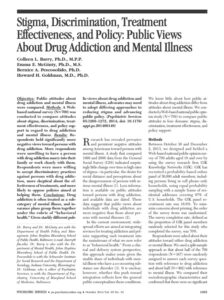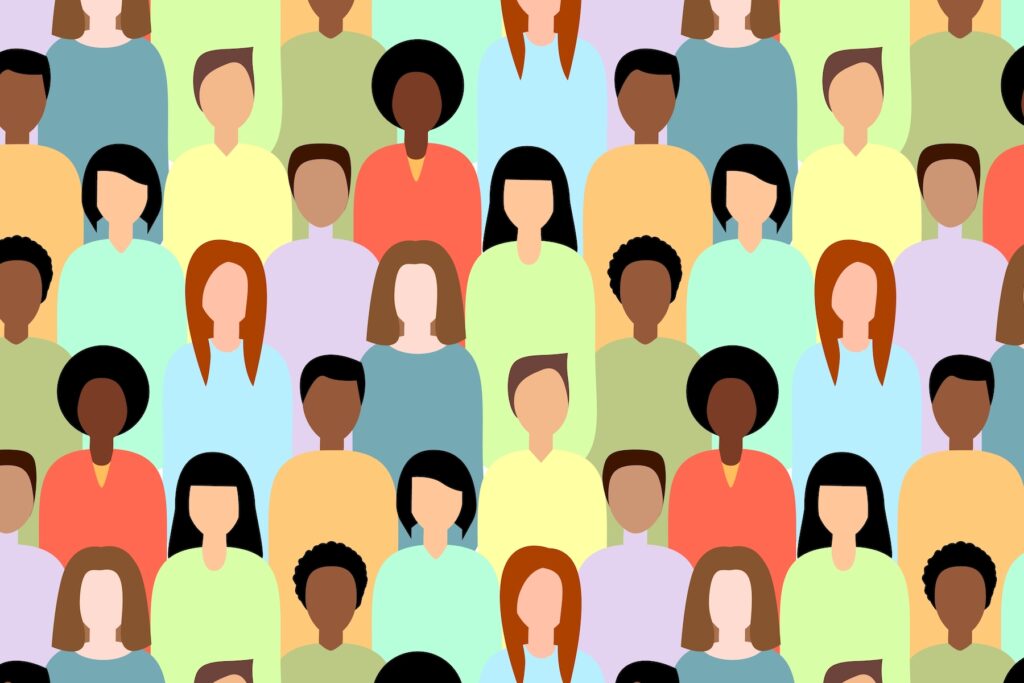 Public Views About Drug Addiction & Mental Illness
Public Views About Drug Addiction & Mental Illness
Research has revealed pervasive and persistent negative attitudes among Americans toward persons with mental illness. A study that compared 1999 and 2006 data from the General Social Survey (GSS) indicated surprisingly little change over time in high rates of stigma—in particular, the desire for social distance and perceptions about the dangerousness of persons with serious mental illness. Less information is available on public attitudes toward persons with drug addiction, and available data are dated. These data suggest that public views about individuals with drug addiction are more negative than those about persons with mental illnesses. In the current environment, widespread efforts are aimed at integrating services for treating addiction and policies supporting such treatment into the mainstream of what we now refer to as “behavioral health.” From a clinical and delivery system perspective, this approach makes sense given the sizable share of individuals with mental illness who have a co-occurring substance use disorder. It is unclear, however, whether this push toward integration reflects how the general public conceptualizes these conditions. We know little about how public attitudes about drug addiction differ from attitudes about mental illness. We conducted a Web-based national public opinion study (N5709) to compare public attitudes in four domains: stigma, discrimination, treatment effectiveness, and policy support.


